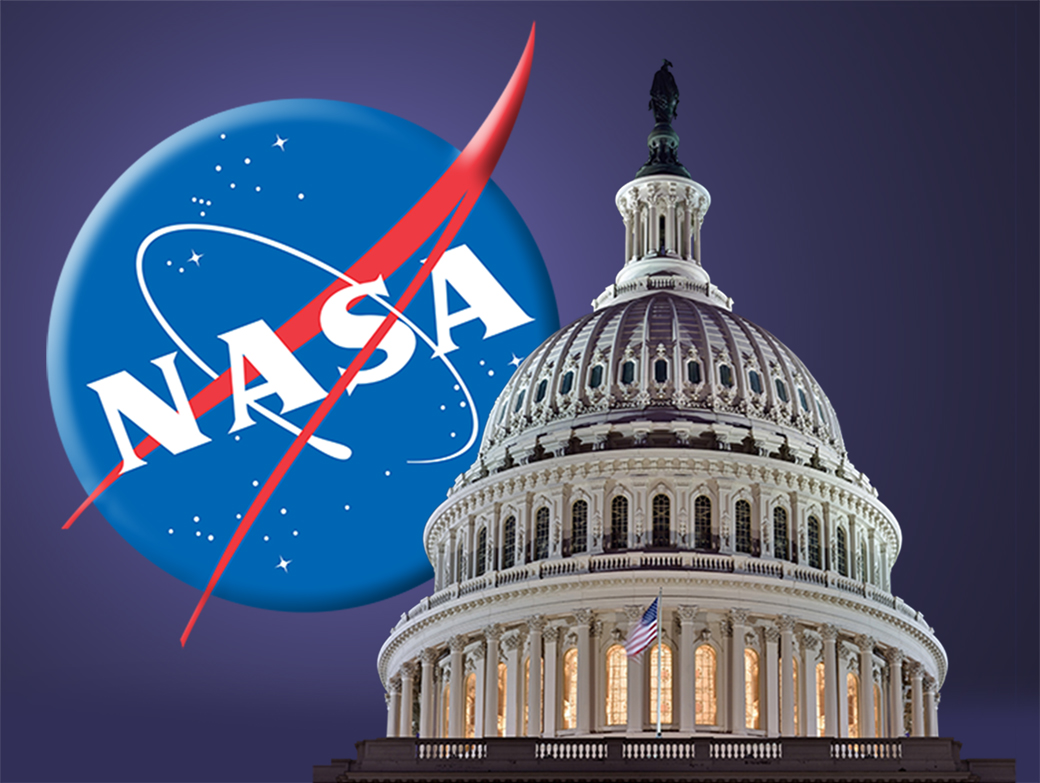Products You May Like
WASHINGTON — The Senate unanimously approved a NASA authorization bill Dec. 18, a largely symbolic move intended to set up work on a new version of the legislation next year.
The Senate passed by unanimous consent S. 2800, the NASA Authorization Act of 2019. The bill had been awaiting action by the full Senate since its passage in November 2019 by the Senate Commerce Committee.
The bill’s lead sponsor, Sen. Ted Cruz (R-Texas), chair of the Senate space subcommittee, emphasized in brief floor comments the bipartisan nature of the bill. The chair and ranking member of the full Senate Commerce Committee, along with the ranking member of the space subcommittee, co-sponsored the bill with Cruz.
“What we have achieved together is legislation that enjoys deep and broad bipartisan support and that sets bold goals for NASA and the United States in space. It provides the direction and the infrastructure necessary to meet them,” he said.
The bill supported NASA’s exploration programs and also extended the authorization of International Space Station operations through 2030. It had been bogged down, though, amid debates about other provisions, including one that requires NASA to review the relationships its contractors have with China.
Cruz and the bill’s other sponsors had hoped to overcome those problems in time to pass the bill. “I’m hopeful that we will be able to get this authorization bill done. I can’t promise you it’s going to get done in a lame-duck session of Congress, but if it doesn’t, I guarantee you it will be done in the very early part of 2021,” Sen. Maria Cantwell (D-Wash.), ranking member of the Senate Commerce Committee, said in a Nov. 6 talk.
Despite the bill’s passage in the Senate, Cruz acknowledged there was no chance for the bill to become law this year. The House had its own version of a NASA authorization bill that had significant differences with the Senate version, notably in management of lunar lander development at NASA. Rep. Kendra Horn (D-Okla.), chair of the House space subcommittee, said in a Nov. 16 interview that it was unlikely that the House would take up the Senate bill.
“I think there are some differences that we would want to work our way through,” she said of the House and Senate bills. “Given the time between now and the end of the year, it would be a heavy lift to get either bill out of both houses and signed into law.”
Cruz said the bill is intended to be a starting point for a NASA authorization bill in early 2021 under a new Congress. “While this bill is not going to pass the House of Representatives during the remainder of this Congress, I look forward to the beginning of the next Congress where we can use this unanimously approved legislation as the starting point to move quickly to pass a comprehensive NASA authorization act across the finish line and get it signed into law,” he said.
Industry groups offered similar messages about the bill, looking ahead not just to a new Congress but the Biden administration. “We must harness the momentum of this strong authorization act in the next Congress and administration, ensuring America’s continued leadership in space and aeronautics for years to come,” said Eric Fanning, president and chief executive of the Aerospace Industries Association, in a statement.
The Commercial Spaceflight Federation noted in a statement the bill’s support of public-private partnerships. “It sends a strong message that partnerships with America’s commercial space sector provide NASA with the world’s most innovative and affordable technologies and solutions to achieve its ambitious missions across the solar system,” said Audrey Powers, chair of the CSF’s board.
